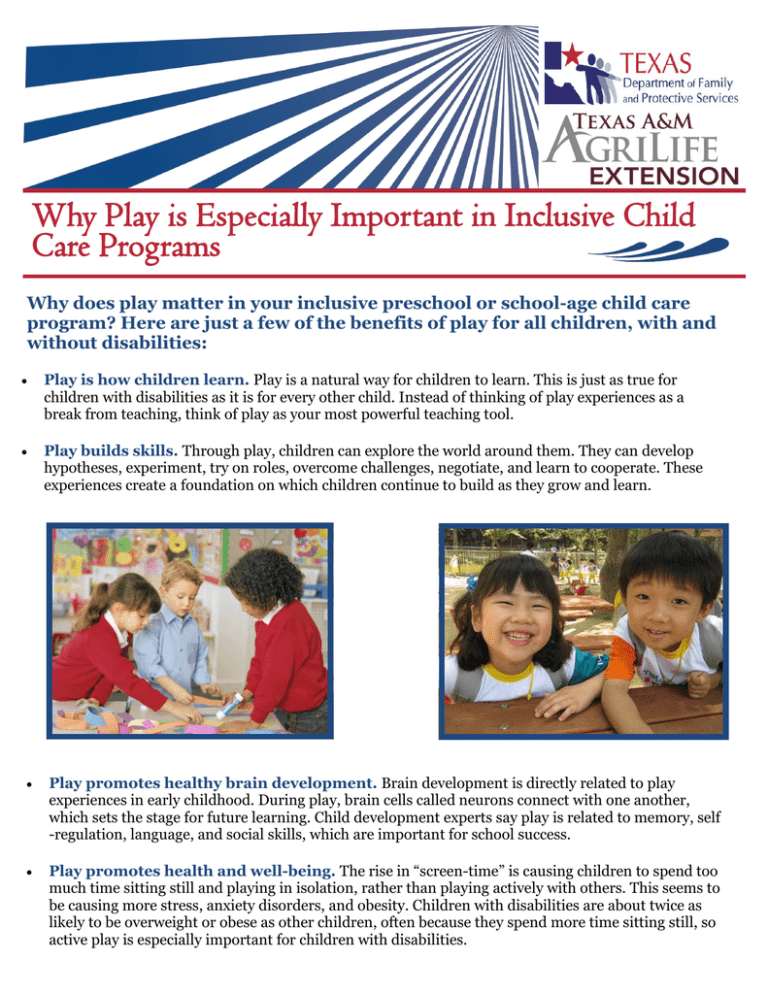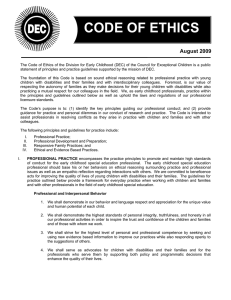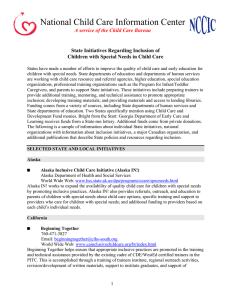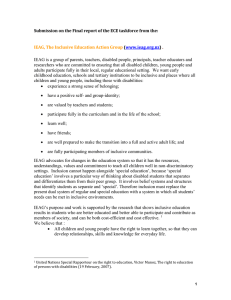Why Play is Especially Important in Inclusive Child Care Programs
advertisement

Why Play is Especially Important in Inclusive Child Care Programs Why does play matter in your inclusive preschool or school-age child care program? Here are just a few of the benefits of play for all children, with and without disabilities: Play is how children learn. Play is a natural way for children to learn. This is just as true for children with disabilities as it is for every other child. Instead of thinking of play experiences as a break from teaching, think of play as your most powerful teaching tool. Play builds skills. Through play, children can explore the world around them. They can develop hypotheses, experiment, try on roles, overcome challenges, negotiate, and learn to cooperate. These experiences create a foundation on which children continue to build as they grow and learn. Play promotes healthy brain development. Brain development is directly related to play experiences in early childhood. During play, brain cells called neurons connect with one another, which sets the stage for future learning. Child development experts say play is related to memory, self -regulation, language, and social skills, which are important for school success. Play promotes health and well-being. The rise in “screen-time” is causing children to spend too much time sitting still and playing in isolation, rather than playing actively with others. This seems to be causing more stress, anxiety disorders, and obesity. Children with disabilities are about twice as likely to be overweight or obese as other children, often because they spend more time sitting still, so active play is especially important for children with disabilities. Play promotes social-emotional development. Play helps children master their emotions, make their own decisions, take on roles, and practice dealing with ideas and feelings they might encounter in real life. It also teaches flexibility, motivation and confidence. Language and relationship skills are improved through play as well. As children play in groups, they learn to navigate different social situations, and build the skills they will need to grow up socially competent. Play is fun. Play gives children the opportunity to grow and develop socially, emotionally, physically, and cognitively, but play is also fun! Play allows children to enjoy the process of “growing up.” Play might look like it has no purpose, but it is the best way to prepare children for the real world. Play is perhaps especially important for children with disabilities. Many children with special needs have had little time to experience the joys of childhood. They have often spent a great deal of time with adults, including doctors and therapists. Their time to “just play” has often been limited. Giving a child with a disability the chance to play freely with her peers is giving her a chance to be just a child, free of adult-driven treatments and therapies for a little while, and enjoy her childhood.




